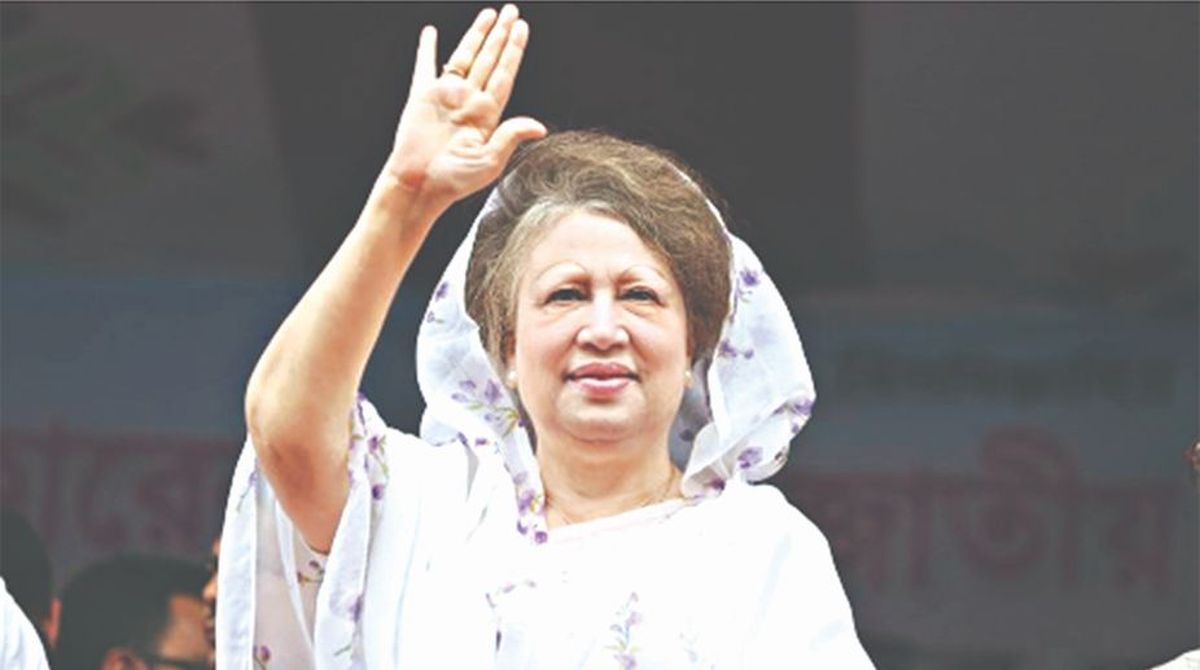War or peace, the truth suffers
The ministries of information in our patch have remained a euphemism for the state’s propaganda overdrive targeting its own people mainly, come peace or war.
The discourse over dissent in a democracy has been rudely jolted in Bangladesh barely two months before the general election.

Former Prime Minister of Bangladesh Khaleda Zia.
The discourse over dissent in a democracy has been rudely jolted in Bangladesh barely two months before the general election.
The renewal of the tryst with democracy, should it be uncontested yet again, will be carried out on the terms of the Awami League dispensation. This cannot readily be ruled out as the Bangladesh Nationalist Party has been rendered rudderless with its incarcerated leader, Begum Khaleda, now battling illness in hospital.
Advertisement
Into this chaotic scenario comes the President’s assent to the Digital Security Act, a legislation with roots in British India and has over time incorporated stringent provisions such as arrests without warrant. Small wonder that President Abdul Hamid’s seal of approval has been greeted with vehement opposition by the country’s liberal and rationalist circuit, indeed the victims of fatal attacks by the Islamist fringe. The digital law is the latest authoritarian move by a seemingly democratic Prime Minister, Begum Hasina, who in August this year was criticised for suppressing student protests over a fatal road accident.
Advertisement
Furthermore, the government’s war on drugs has provoked accusations of extra-judicial killings by security forces, a charge that the administration denies. The police have allegedly shot more than 200 people for drug-related offences over the past five months It shall not be easy for Hasina to counter the charge of the New York-based Human Rights Watch that the law is a “tool ripe for abuse and a clear violation of the country’s obligations under the international law to protect free speech”. Both in terms of the Digital Security Act and the crackdown against drugs, there is little doubt that the government in Dhaka is becoming increasingly authoritarian ahead of the elections. Fears expressed by media groups that the controversial new law could cripple press freedom and curb free speech are not wholly unfounded. At stake are the certitudes of democracy.
The government is yet to keep its promise that certain provisions will be dropped. Far from it. The only course of action now left for the Awami League is to amend the measure; but the party and the government are unlikely to play on the backfoot in the immediate aftermath of the presidential assent, and thus betray a sign of weakness before the elections. Hasina’s defence that the digital law is necessary to combat crime has not been generally endorsed. Equally will it impinge on speech, let alone dissent in course of the campaign. It needs to be underlined that scores of people, including journalists, have been imprisoned for online criticism of the government ever since Hasina assumed power in 2009.
Close to a decade later, she has adopted the legislative route to muzzle free speech and the media. The 2013 election, it bears recall, was held under the shadow of the soldier’s gun. In 2018, there is a draconian law to protect the incumbent regime. Democracy can often be spurious.
Advertisement